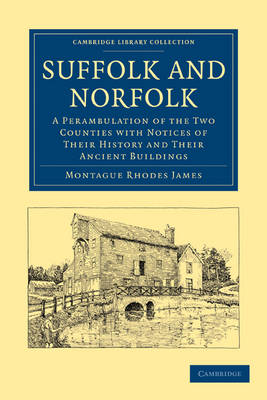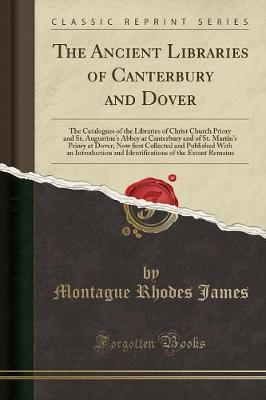Cambridge Library Collection - Medieval History
3 total works
M. R. James (1862-1936) is probably best remembered as a writer of chilling ghost stories, but he was an outstanding scholar of medieval literature and palaeography, who served both as Provost of King's College, Cambridge, and as Director of the Fitzwilliam Museum, and many of his stories reflect his academic background. First published in 1930, this volume contains a guide to many historical places of interest in the counties of Suffolk and Norfolk. James concentrates mainly on the medieval history of these counties, weaving fascinating details of personalities and daily life with surviving examples of churches, monasteries and manors. In this tour around the two counties, the history of rich monastic foundations such as Bury St Edmunds and Norwich is discussed together with lesser-known historical sites in a clearly written and richly illustrated volume, which remains a valuable source for medieval scholars and historians.
M. R. James (1862-1936) is probably best remembered as a writer of chilling ghost stories, but he was an outstanding scholar of medieval literature and palaeography, who served both as Provost of King's College, Cambridge and as Director of the Fitzwilliam Museum. His detailed descriptive catalogues of manuscripts owned by colleges, cathedrals and museums are still of value to scholars today. This volume, first published in 1903, contains James' study of medieval catalogues relating to three monastic libraries in Kent which were among the largest book collections in pre-Reformation England. James gives a fascinating account of the books listed, their provenance and their donors. The libraries were dispersed at the Dissolution, and James' major contribution was to identify many of the surviving manuscripts, now preserved in London, Oxford, Cambridge and elsewhere. This reissue of James's monumental research project will be welcomed by librarians and researchers alike.
Private Diary of Dr. John Dee, and the Catalogue of his Library of Manuscripts
by Montague Rhodes James
Published 7 February 2010
From the Original Manuscripts in the Ashmolean Museum at Oxford, and Trinity College Library, Cambridge. The eminent philosopher of Mortlake. The publication of this Diary will tend perhaps to set Dee's character in its true light, more than anything that has yet been printed.


